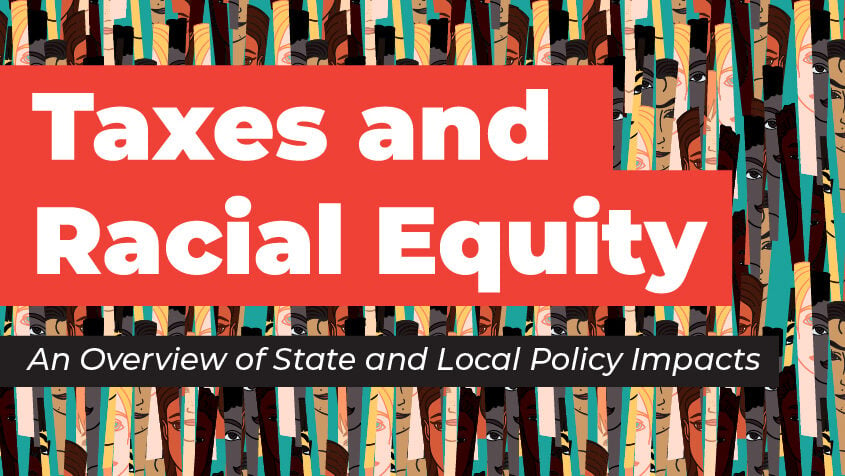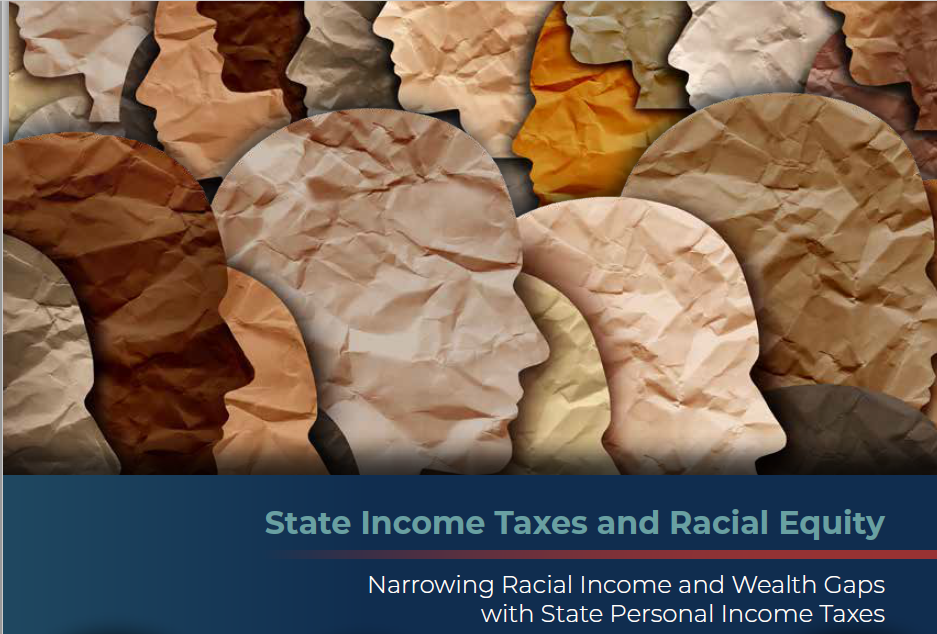“From the inception of the emerging American nation, the South is a central battleground in the struggles for freedom, justice, and equality. It is the location of the most intense repression, exploitation, and reaction directed toward Africans Americans, as well as Native Americans and working people generally. At the same time the South is the site of the most heroic resistance to these oppressive conditions”
– Walda Katz-Fishman and Jermone Scott, The South and the Black Radical Tradition: Then and Now“A fact of modern living is that the least valued carry the heaviest burden.”
– Imani Perry, As Goes the South, So Goes the Nation
In a new report, Creating Racially and Economically Equitable Tax Policy in the South, ITEP examines southern state tax policies through a historical and present-day racial and economic lens and highlights recommendations for reversing the inadequate, upside-down tax codes that lawmakers have shaped over centuries.
Southern people deserve far more than the upside-down, and often anti-democratic tax policies supported by many southern state lawmakers. A quick survey of state outcomes show that the South is in dire straits with high rates of income inequality, childhood poverty, high school dropouts and premature deaths, amid other issues. None of these negative outcomes occurred by accident, but because of deliberate policy choices made over generations. From highly restrictive property tax limits in Alabama to supermajority requirements for state tax increases in Mississippi, tax policy at the turn of the 20th century centered on protecting wealthier, disproportionately white, households from taxation at the expense of building a more prosperous, inclusive society that works for everyone.
While explicitly racist tax policy writing from the past has given way to more subtle, seemingly “colorblind” policies that favor the affluent, the outcomes are the same – underinvestment in people and places, especially marginalized Black and brown communities, as well as a pattern of redistributing money from poor and middle-income households to the wealthy. Echoes of this remain today and inform present-day policymaking (see ITEP’s reports on ‘Taxes and Racial Equity’ and ‘State Income Taxes and Racial Equity’ for more information). For example, southern states typically rely more on consumption taxes and less on income or property taxes than the national average – a pattern that worsens income and racial inequality. Corporate tax rates have plummeted in the South compared to the rest of the nation over the last half-century. Subsidies, tax credits, and tax loopholes have weakened the corporate income tax base, sometimes with little to no return on investment in well-paid jobs for state residents. Louisiana, for example, is home to six of the largest and most profitable oil and gas companies in the world, yet their presence has done less than it should for communities. A 2017 Together Louisiana report found that over two decades, the state’s Industrial Tax Exemption Program provided $23 billion in public subsidies, drastically shortchanging schools and public services.
The most recent legislative sessions upheld this prioritization of corporate interests and wealthier households. Mississippi and Georgia both moved to flat income tax rates this year. In Mississippi, the policy change will cost the state more than $500 million annually and most of the tax dollars will flow to white households, exacerbating existing racial income inequities. This is an egregious missed opportunity when those funds could have been used to expand Medicaid, fully fund education, update sewage systems, invest in broadband infrastructure or provide any number of other priorities. In Georgia, the gradual move to a 4.99 flat tax rate will reduce state revenues by over $2 billion annually and again, the benefits will flow to top earners who are disproportionately white. At every turn, state lawmakers rejected policy choices that would have meaningfully improved residents’ lives and created a more just tax system.
But it doesn’t have to be this way. ITEP’s specific recommendations vary by state, but policies common to all states include:
- Removing legal and procedural barriers for raising revenue
- Ensuring higher reliance on graduated income taxes with high-income brackets
- Enacting refundable state Child Tax Credits and Earned Income Tax Credits
- Adopting strong estate and inheritances taxes
- Adopting “circuit breaker” programs to protect low-income homeowners and renters who are hit hardest by property taxes
- Increasing corporate income tax rates and broadening the corporate tax base
We recognize that surmounting the barriers to sustainable, adequate and progressive tax policy is not easy, but it is well worth the effort. And we know that despite the entrenched interests in the South that have dominated the political playing field, southern Black activists have a rich tradition of engaging communities and building collective power to push for change. Remedying regressive tax policies alone will not reverse systemic injustices, but equitable tax policy in the South is necessary for reimagining a vision of the South as it could and should be – a prosperous and equitable region that broadens economic power for the most vulnerable, marginalized, underserved and persevering communities in the nation.





